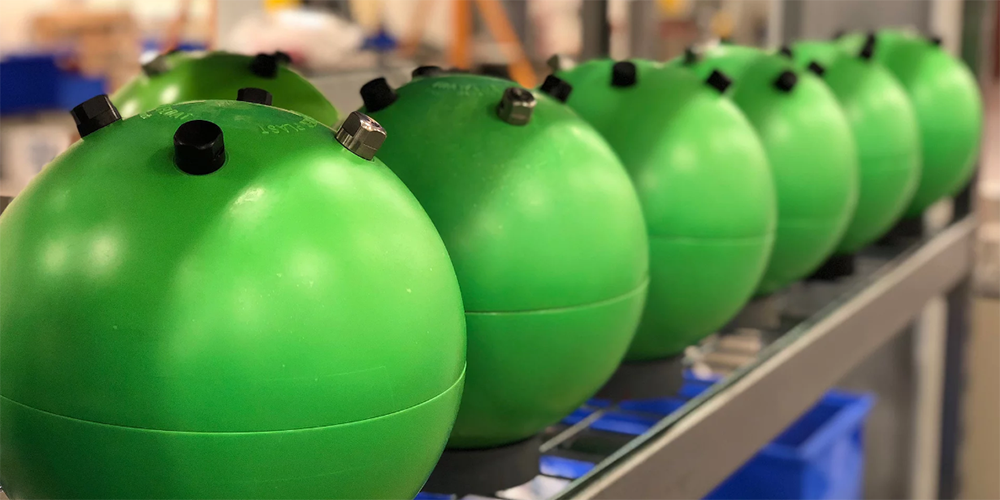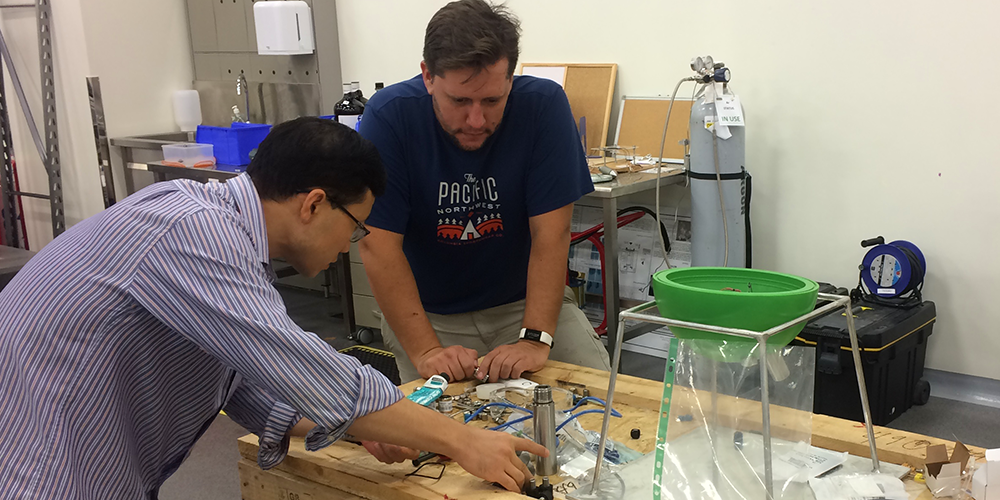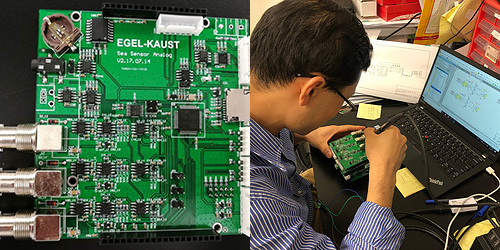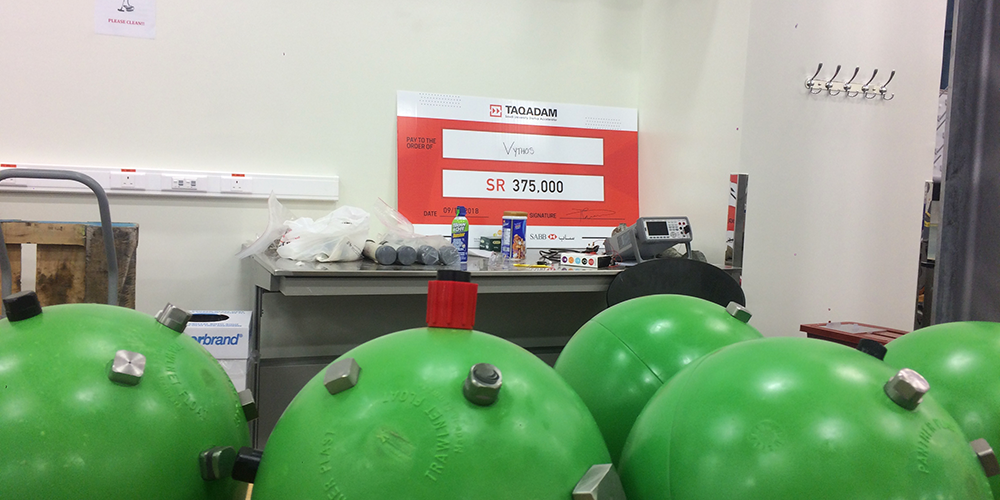.jpg?sfvrsn=39330263_0)
.jpg?sfvrsn=39330263_0)

03 October, 2018
A tiny satellite can be put into orbit for as little as $1000. In contrast, probes and sensing equipment used in the deep sea can easily cost tens of thousands of dollars. This helps explain why Geo-technology researcher and Vythos co-founder Marco Terzariol says "nearly 95% of the ocean seafloor is virtually unexplored." Very high pressures and a corrosive environment add technical challenges to the exploration of the vast oceans, compounded by the fact that "the oceans have not yet received our full attention."


Meanwhile the oceans remain critical to our lives. Besides providing food, water and massive carbon storage, the oceans hold mineral accumulations and rest above major oil fields. Vythos seeks to do for the bottom of the ocean what research scientists and private industry are doing for space. Its flagship product is the Seafloor Monitoring Observatory. Each node is a small green sphere about the size of a football that can be used up to a depth of 1000 meters (redesigned for 3000m in the next version). A concrete base keeps it anchored to the seafloor until it detaches on schedule and floats to the surface for recovery. Users can place a wide range of sensors inside the device to measure pressure and temperature, salinity and pH, and from acoustic to seismic-vibration signals, among other parameters. The device may cost less than $2000 to manufacture, and the team hopes to bring the cost down even further. A full-scale test to study an underwater volcano in the Canary Islands is already in the works for October.


Terzariol speaks casually about the challenges of building a customizable observation platform from the ground up. Together with co-Founder Dr. Dr. Jiming Jiang, they bring together expertise in mechanical, electronic and geotechnical engineering. A major challenge was to leave the lab: they had to speak a different technical language with engineers in industry than with scientists in the lab. "In November of 2017 we were encouraged by KAUST to enter the startup competition Taqadam. We've had the full support of the university the whole way." Vythos was one of six startups to win $100,000 in Taqadam's final round last week.


Vythos will use the money to expand and develop as a business, bringing on new people and equipment to build a fully realized final product. The customizable nature and low cost of the Seafloor Monotoring Observatory opens great opportunities for a wide range of potential customers, including environment scientists and engineers studying the ocean, energy companies looking to find gas seeps, offshore mining companies, ports interested in expanding their facilities, and governments in the context of national security and protection from natural events. More information about Vythos is available on their website.

